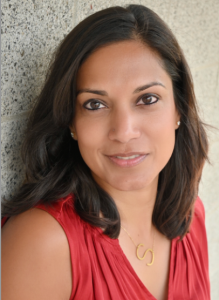Open Voices, Just Choices Speaker Series
Surita Jhangiani: Assessing Inclusive OER Design with DEIA and UDL Principles
Surita Jhangiani
Assessing Inclusive OER Design with DEIA and UDL Principles
Drawing on her experiences with and research on open pedagogy, belonging, and critical digital pedagogies, Associate Professor of Teaching and Interim Associate Dean of Equity at the University of British Columbia, Surita Jhangiani, shares her insights on integrating and assessing student perceptions of DEIA in OER using principles of Universal Design for Learning (UDL).
About the Speaker
 Surita Jhangiani (she/her/hers; Ph.D.) is the David Lam Chair in Multicultural Education and an Associate Professor of Teaching in the Faculty of Education at the University of British Columbia. A two-time Open Educational Resource Champion award recipient, she advocates for open education, critical multicultural pedagogy, and alternative grading. Her scholarship explores open pedagogy, equity, diversity, inclusion, and decolonization (EDID), as well as fostering belonging in learning environments. Beyond academia, Jhangiani is a writer, podcaster, and mentor. Her publications include Toward a Critical Instructional Design and Designing for Care, along with contributions to The International Review of Research in Open and Distributed Learning.
Surita Jhangiani (she/her/hers; Ph.D.) is the David Lam Chair in Multicultural Education and an Associate Professor of Teaching in the Faculty of Education at the University of British Columbia. A two-time Open Educational Resource Champion award recipient, she advocates for open education, critical multicultural pedagogy, and alternative grading. Her scholarship explores open pedagogy, equity, diversity, inclusion, and decolonization (EDID), as well as fostering belonging in learning environments. Beyond academia, Jhangiani is a writer, podcaster, and mentor. Her publications include Toward a Critical Instructional Design and Designing for Care, along with contributions to The International Review of Research in Open and Distributed Learning.
Toward a Critical Instructional Design
Recording, Transcript, and Slide deck
Access Surita’s Slide Deck
Resources Shared
Artificial Intelligence & UDL by CAST. [CAST’s Artificial Intelligence and Universal Design for Learning tool]
Business Writing for Everyone by Arley Cruthers is licensed under CC BY-NC 4.0.
Critically Appraising for Antiracism by Ramona Naicker.
Empowered OER by Niki Andersen is licensed under CC BY-NC-SA 4.0.
A Social Justice Framework for Understanding Open Educational Resources and Practices in the Global South. Journal of Learning for Development, 5(3), pp. 204-224, by Cheryl Ann Hodgkinson-Williams and Henry Trotter is licensed under CC BY-SA 4.0.
Equity Rubric for OER Evaluation. Branch Alliance for Educator Diversity by R.Z. Grunzke, S. T. Mayo, K. Grotewold, and P. Ianiello is licensed under CC BY-NC-SA 4.0.
Kelly, A. E., Laurin, J. N., & Clinton-Lisell, V. (2022). Making Psychology’s Hidden Figures Visible Using Open Educational Resources: A Replication and Extension Study. Teaching of Psychology, 51(3), 251-259, is licensed under CC BY-NC 4.0.
Nusbaum, A.T. 2020. Who Gets to Wield Academic Mjolnir?: On Worthiness, Knowledge Curation, and Using the Power of the People to Diversify OER. Journal of Interactive Media in Education, 1(4), pp. 1–9, is licensed under CC BY 4.0.
Open For Antiracism Program by the Community College Consortium for Open Educational Resources is licensed under CC BY 4.0.
Stommel, J. Critical Digital Pedagogy: a Definition, Hybrid Pedagogy, is licensed under CC BY-NC 4.0.
Teaching and Learning with Open Educational Resources (OER) by Rebecca Griffiths, Ela Joshi, Emma Pellerin, and Audra Wingard is licensed under CC BY 4.0.
Teaching in the University by Donna Westfall-Rudd, Courtney Vengrin, and Jeremy Elliott-Engel is licensed under CC BY-NC 4.0.
The UDL Guidelines by CAST.
Where are the crescents in AI? for the London School of Economics and Political Science Higher Education (blog) by Maha Bali.
Assessing Inclusive OER Design with DEIA and UDL Principles by Surita Jhangiani is licensed under CC BY-NC 4.0.
